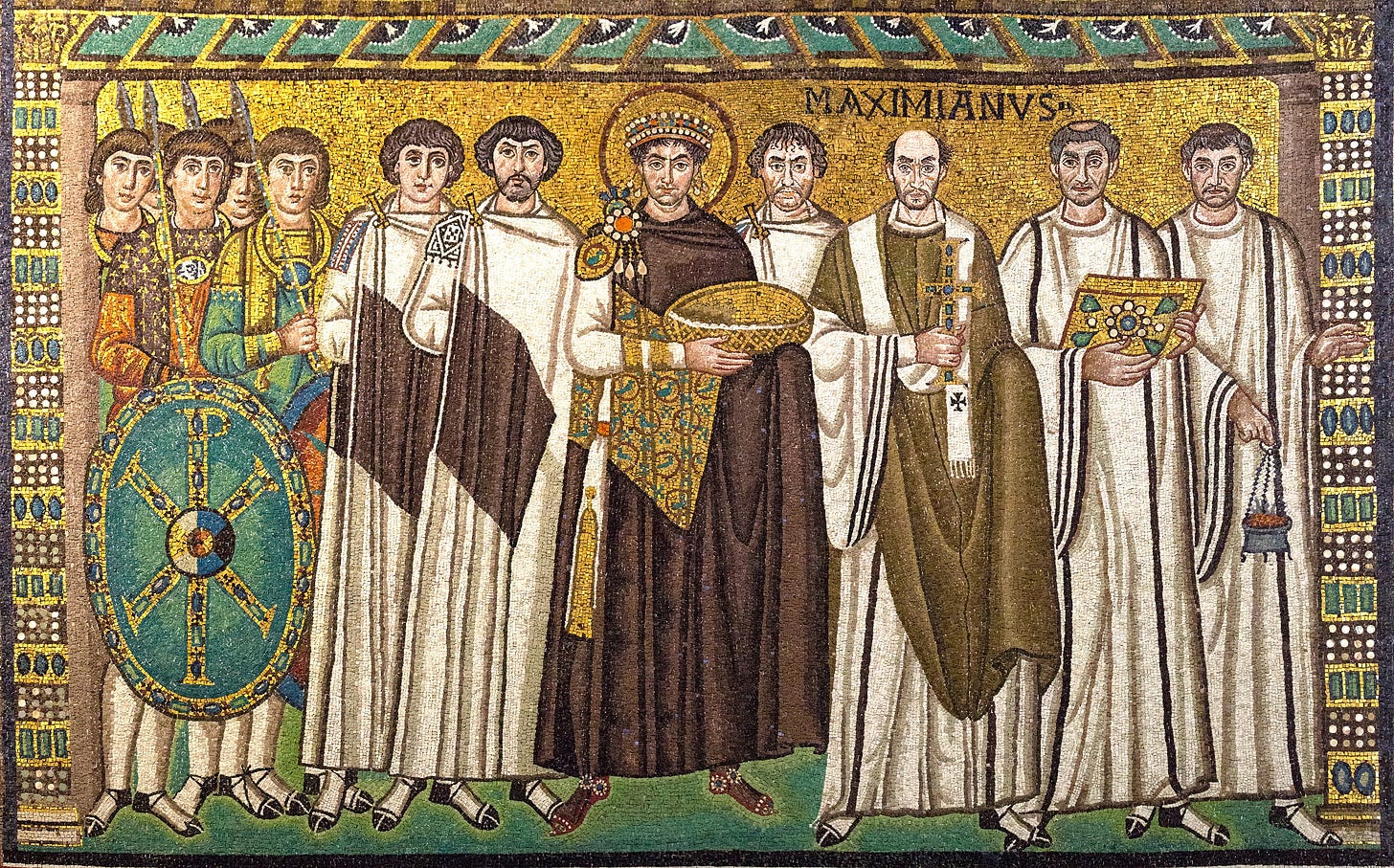The Lost Crowns of Europe
Exploring Forgotten Monarchies and the Echoes of Vanished Royalty
I: The Holy Empire—Roman, Byzantine, and Central European

Gil-galad was an elven-king.
Of him the harpers sadly sing;
the last whose realm was fair and free
between the Mountains and the Sea.His sword was long, his lance was keen.
His shining helm afar was seen;
the countless stars of heaven's field
were mirrored in his silver shield.But long ago he rode away,
and where he dwelleth none can say;
for into darkness fell his star
in Mordor where the shadows are.
—J.R.R. Tolkien
Although the United Kingdom, Spain, the three Scandinavian countries, and the Benelux nations remain as sorts of “crowned republics, ironically it is the smaller Monarchies of Europe (Liechtenstein, Monaco, the Holy See, and the Order of Malta) where Monarchs retain something of their traditional power. The rest of the Continent is divided up by a number of republics, whose generally worthless politicians fit the usual mode. But the Monarchies they displaced left a great deal behind in terms of customs, manners, religion, and buildings—to say nothing of the very organs of State themselves. Often enough, the heirs of the various thrones continue to fulfil various public roles. In this article, we shall explore a number of such, bearing in mind that what we perceive as last remnants may one day be the foundation stones of a new and better order. The first we shall look at, in a real sense (barring Armenia, Georgia, or Ethiopia) is the Granddaddy of all Christian Kingdoms—the Christian Empire prefigured by Constantine’s conversion in 312, and sealed by Theodosius the great in 380. In 494, Pope St. Gelasius I addressed the following letter to Emperor Anastasius, which laid down the relationship between Pope and Emperor:
Indeed, there are two means, August Emperor, by which this world is chiefly ruled: the sacred authority (auctoritas sacrata) of the priests and the royal power (regalis potestas). Of these, how much greater is the responsibility of the priests, in that they even have to render an account for the kings of men at the divine judgment. You also know, most merciful son, that though you preside over a human office, as a devout man you nevertheless bend your neck to the rectors of divine things and await from them the reasons of your salvation. And in their taking up the heavenly sacraments and distributing them, as is appropriate, you recognize that you should be subordinate to the priestly order rather than rule over it, and so in these things you depend on their judgment and do not wish to bend them to your will. For if, to the degree that it pertains to the order of public discipline, the ministers of religion also obey your laws, recognizing the power of command attributed to you by divine disposition—lest their own judgments, which are excluded from worldy affairs, are seen to stand in the way [of them]—with what fitting readiness, I beseech you, should you not yield obedience to those who are assigned those venerable religious rites?
The Empire: Roman, Holy, Byzantine, Or What?
When Constantine converted to Catholicism, and when Theodosius the Great made it the State Religion of the Empire, the Catholic Empire was born. After Romulus Augustulus was deposed in 476 AD, it was agreed that there was once again only one Emperor—the one in Constantinople. All of the European kingdoms that grew up o formerly Imperial soil—or expanded and were called into being through Baptism in neighbouring areas where the legions had never gone considered themselves likewise. But Pope St. Leo III resurrected the Western Empire when he crowned Bl. Charlemagne. The relationship between the two Emperors was exacerbated by the Great Schism of 1054—and within a century, the Kings of France—asserting their succession to Charlemagne also claimed a certain independence from the HRE. Nevertheless, both Empires still used the Double Eagle. The Byzantine Empire was snuffed out by the Turks in 1453, the HRE severely weakened by the Protestant revolt, and then de facto ended—though not de jure—in 1806. The Habsburgs and Romanoffs for various reasons laid claim to the Imperial inheritance, but they lost their thrones in 1917 and 1918. But the founders of the EU invoked the crown of Charlemagne.


